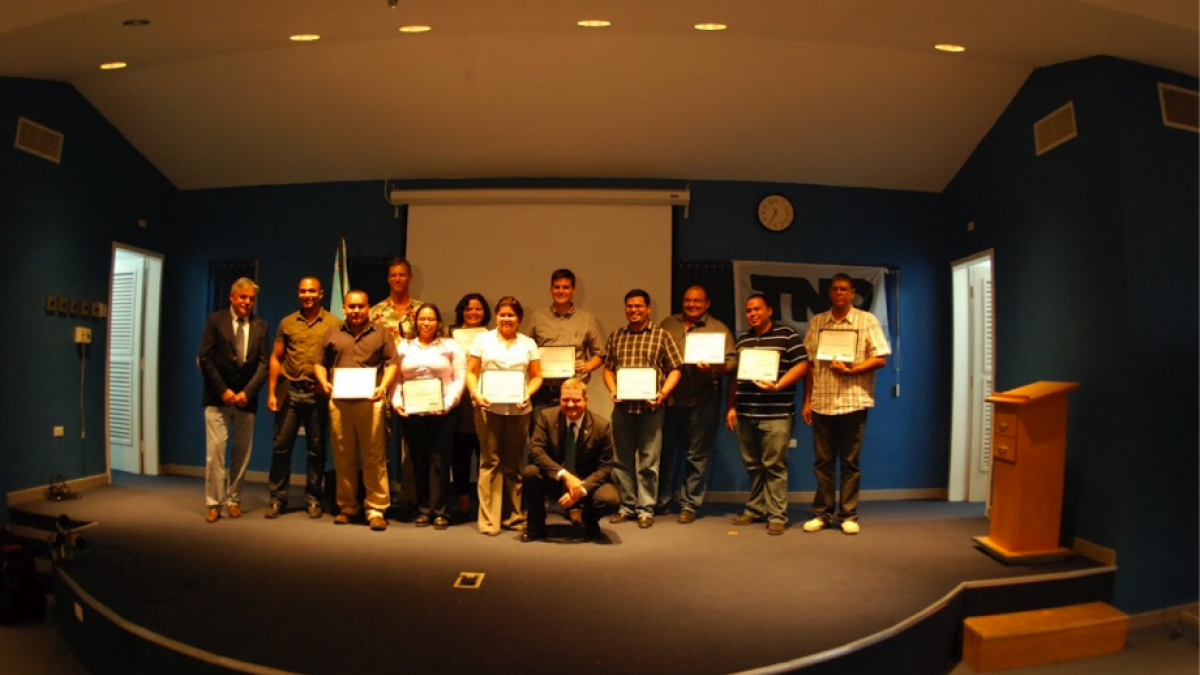ASU leads solar energy training in Aruba

The Collaboratory at ASU’s College of Technology and Innovation (CTI) and the Caribbean Branch Office TNO (CBET) hosted two technical training sessions on the island of Aruba last month to support Aruba’s sustainable energy transition.
TNO, the Netherlands Organization for Applied Scientific Research, is a nonprofit research organization and established a branch office in Aruba last year to create a center of expertise on sustainable energy technology for the Caribbean. TNO partnered with CTI’s Conservation & Renewable Energy Collaboratory (CREC) to assist in capacity building through professional development.
As part of the partnership, TNO asked CTI to provide two dedicated professional training sessions on solar photovoltaic energy.
The professional workshops were centered on the system design and installation as well as basic engineering principles of photovoltaic (PV) solar energy. The island of Aruba is in the Caribbean Sea, north of the mainland of Venezuela, and experiences an abundance of sunshine. Similar to many other island nations, Aruba has depended on importing fossil fuels to meet its energy requirements. The political leadership has recognized the importance of actively promoting and supporting renewable energy alternatives.
“Aruba realizes that in addition to technological innovation, local capacity building is of key importance,” said Jan Ebbing, director of the Caribbean branch office of TNO. “These trainings are a first important step in this. In addition, we hope to offer these trainings Caribbean-wide, as all islands will have to go through a similar transition.”
The first training focused on PV system design and installation, primarily on utility-connected residential PV systems. The one-week course outline and content was based on the recommended training and learning objectives established by the North American Board of Certified Energy Practitioners (NABCEP). The training was a combination of classroom instruction and extensive hands-on training to safely build, operate and maintain residential PV systems.
The second workshop was an applied PV engineering training for students to understand the engineering, design and operations basics of PV applications. Based on a compressed version of a graduate-level PV course that is taught in the Engineering Technology program at ASU, the one-week workshop was three days of in-depth classroom teaching and a two-day hands-on laboratory workshop.
“Aruba should be complimented as the regional leader in renewable energy in the Caribbean and this training is a true example of ASU’s New American University making a global impact,” said Anshuman Razdan, professor and executive director of CTI’s Collaboratory.
A total of 23 highly motivated and qualified professionals and engineers attended both training sessions. Attendees represented Aruba’s two major utility companies WEB Aruba N.V. and N.V. ELMAR as well as educators from the local technical college and a representative of the government inspection. Prime Minister Mike Eman and the Deputy Prime Minister Mike de Meza joined the final ceremony where students received certificates of completion.
Based on the successful completion of these initial training workshops, CTI and the Collaboratory have started discussions with TNO to extend renewable energy programs in Aruba and throughout the Caribbean.